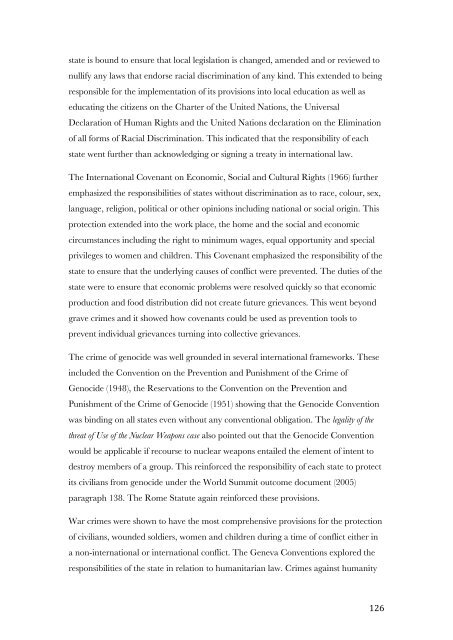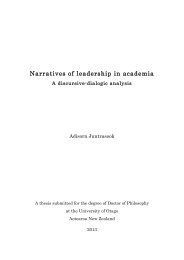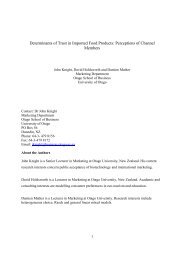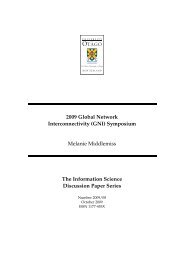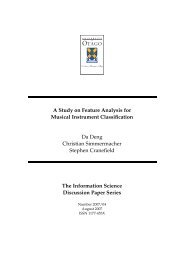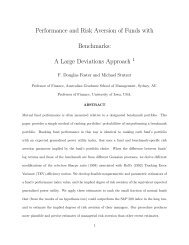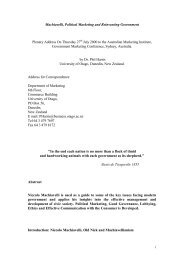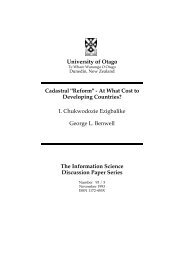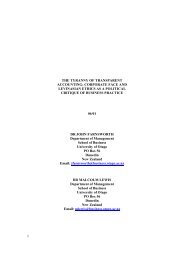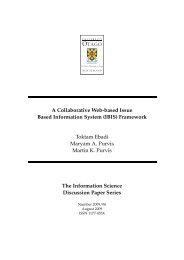Where is R2P grounded in international law? Anne-Marie Judson A ...
Where is R2P grounded in international law? Anne-Marie Judson A ...
Where is R2P grounded in international law? Anne-Marie Judson A ...
Create successful ePaper yourself
Turn your PDF publications into a flip-book with our unique Google optimized e-Paper software.
state <strong>is</strong> bound to ensure that local leg<strong>is</strong>lation <strong>is</strong> changed, amended and or reviewed to<br />
nullify any <strong>law</strong>s that endorse racial d<strong>is</strong>crim<strong>in</strong>ation of any k<strong>in</strong>d. Th<strong>is</strong> extended to be<strong>in</strong>g<br />
responsible for the implementation of its prov<strong>is</strong>ions <strong>in</strong>to local education as well as<br />
educat<strong>in</strong>g the citizens on the Charter of the United Nations, the Universal<br />
Declaration of Human Rights and the United Nations declaration on the Elim<strong>in</strong>ation<br />
of all forms of Racial D<strong>is</strong>crim<strong>in</strong>ation. Th<strong>is</strong> <strong>in</strong>dicated that the responsibility of each<br />
state went further than acknowledg<strong>in</strong>g or sign<strong>in</strong>g a treaty <strong>in</strong> <strong>in</strong>ternational <strong>law</strong>.<br />
The International Covenant on Economic, Social and Cultural Rights (1966) further<br />
emphasized the responsibilities of states without d<strong>is</strong>crim<strong>in</strong>ation as to race, colour, sex,<br />
language, religion, political or other op<strong>in</strong>ions <strong>in</strong>clud<strong>in</strong>g national or social orig<strong>in</strong>. Th<strong>is</strong><br />
protection extended <strong>in</strong>to the work place, the home and the social and economic<br />
circumstances <strong>in</strong>clud<strong>in</strong>g the right to m<strong>in</strong>imum wages, equal opportunity and special<br />
privileges to women and children. Th<strong>is</strong> Covenant emphasized the responsibility of the<br />
state to ensure that the underly<strong>in</strong>g causes of conflict were prevented. The duties of the<br />
state were to ensure that economic problems were resolved quickly so that economic<br />
production and food d<strong>is</strong>tribution did not create future grievances. Th<strong>is</strong> went beyond<br />
grave crimes and it showed how covenants could be used as prevention tools to<br />
prevent <strong>in</strong>dividual grievances turn<strong>in</strong>g <strong>in</strong>to collective grievances.<br />
The crime of genocide was well <strong>grounded</strong> <strong>in</strong> several <strong>in</strong>ternational frameworks. These<br />
<strong>in</strong>cluded the Convention on the Prevention and Pun<strong>is</strong>hment of the Crime of<br />
Genocide (1948), the Reservations to the Convention on the Prevention and<br />
Pun<strong>is</strong>hment of the Crime of Genocide (1951) show<strong>in</strong>g that the Genocide Convention<br />
was b<strong>in</strong>d<strong>in</strong>g on all states even without any conventional obligation. The legality of the<br />
threat of Use of the Nuclear Weapons case also po<strong>in</strong>ted out that the Genocide Convention<br />
would be applicable if recourse to nuclear weapons entailed the element of <strong>in</strong>tent to<br />
destroy members of a group. Th<strong>is</strong> re<strong>in</strong>forced the responsibility of each state to protect<br />
its civilians from genocide under the World Summit outcome document (2005)<br />
paragraph 138. The Rome Statute aga<strong>in</strong> re<strong>in</strong>forced these prov<strong>is</strong>ions.<br />
War crimes were shown to have the most comprehensive prov<strong>is</strong>ions for the protection<br />
of civilians, wounded soldiers, women and children dur<strong>in</strong>g a time of conflict either <strong>in</strong><br />
a non-<strong>in</strong>ternational or <strong>in</strong>ternational conflict. The Geneva Conventions explored the<br />
responsibilities of the state <strong>in</strong> relation to humanitarian <strong>law</strong>. Crimes aga<strong>in</strong>st humanity<br />
<br />
126


